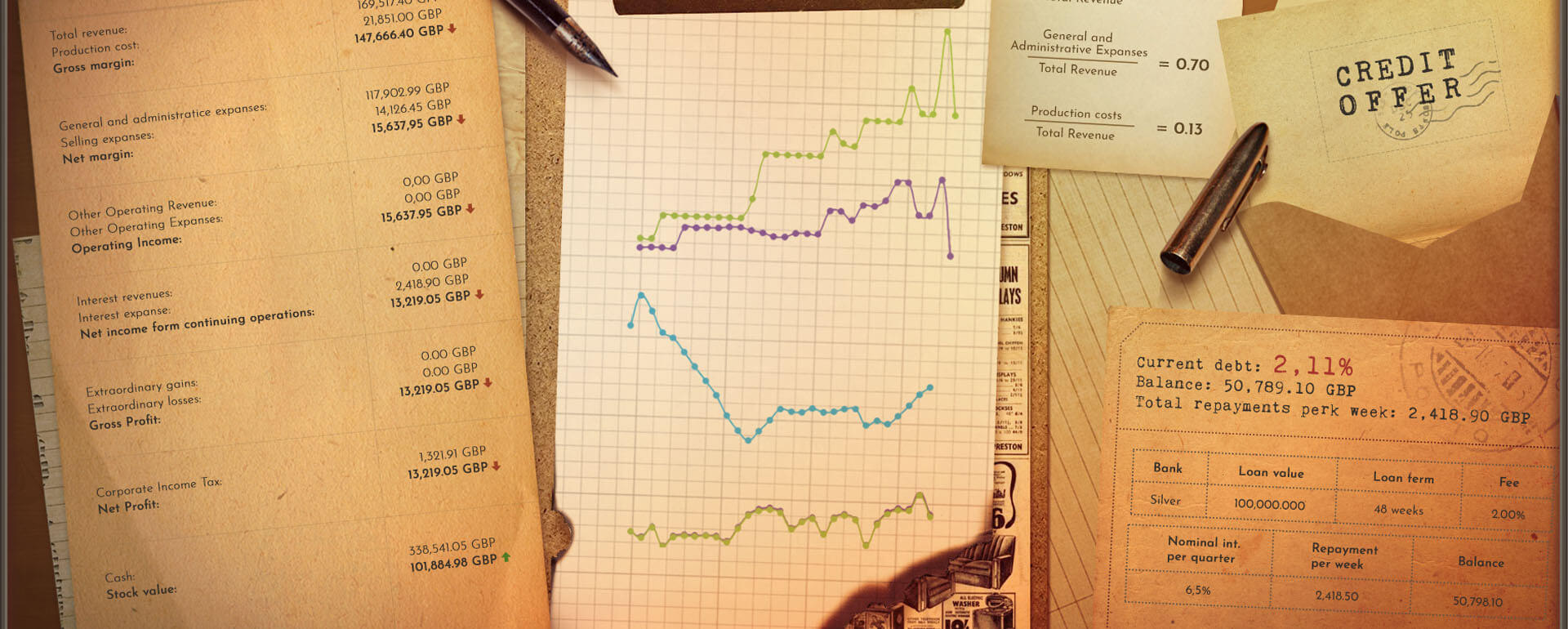
Few words about the importance of economic engine in Coffee Noir
- 9 May 2019
- Development
Usually, games have engines that only roughly represent real-life economics. In Coffee Noir, we use an advanced computing engine capable of creating a very realistic in-game market. Anything related to business is created by professional academics who specialize in economy. In this blog, we’ll show you how complicated and important is the business tycoon part of our game.
The engine reflects real-life situations that contemporary managers face every day. The game is dedicated to a wide array of players, who wish to feel how it is to manage the company from the point of the four sections: production, sales, marketing and HR.
PRODUCTION
In this section the player determines how much they want to produce and what the cost will be. Innovations play an important role, as they increase production capabilities and lower unit costs. Any possible change is calculated by the engine and presented to the player in the form of numbers and graphs, based on which player takes the ultimate decision. Classic microeconomics cost classification was adopted with the division on fixed, variable, unit and marginal cost. Thanks to the combination of computing engine and user-friendly graphics, the player chooses between different levels of production with pleasure and deep sense of immersion.
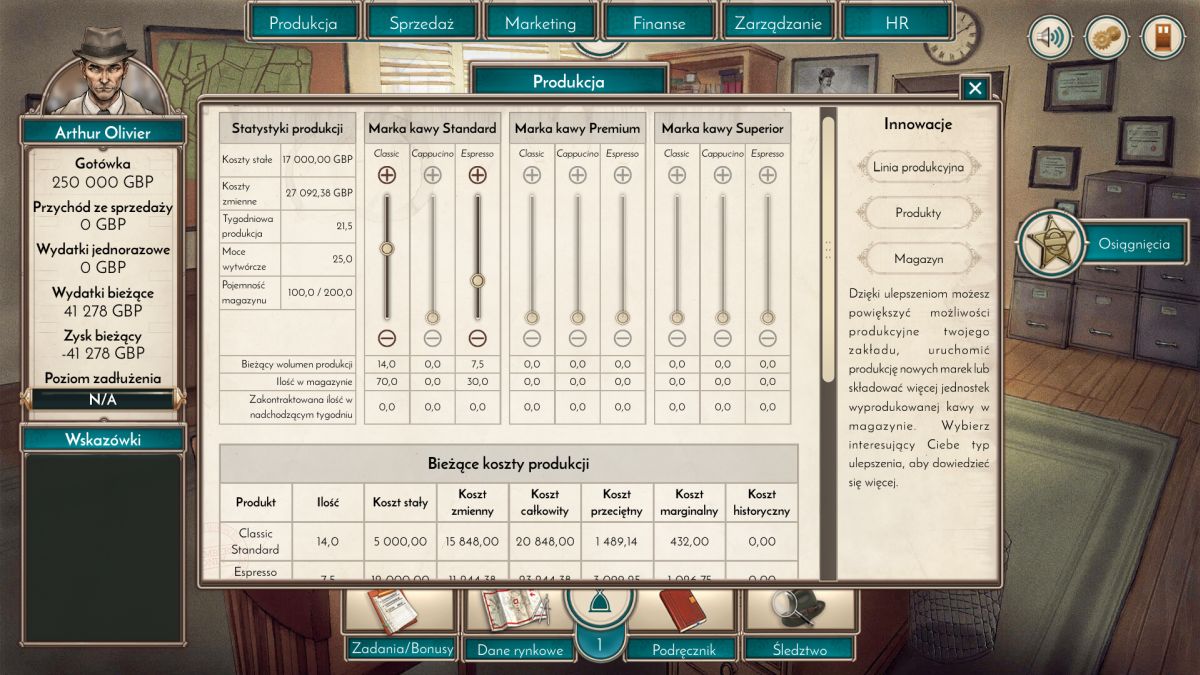
SALES
In the sales section, the player talks to contractors and tries to establish cooperation on the best possible terms. For this purpose, a highly interactive negotiating module was created, which differs from the existing solutions implemented in previous games in a way that allows the player to use and check the effectiveness of over 30 negotiation techniques, including such well-known ones as: Dead Fish, Russian Front or Brooklyn optician tactic. Choosing the right negotiating technique leads to certain positive or negative financial consequences, such as higher or lower margin, which is clearly presented on the screen.
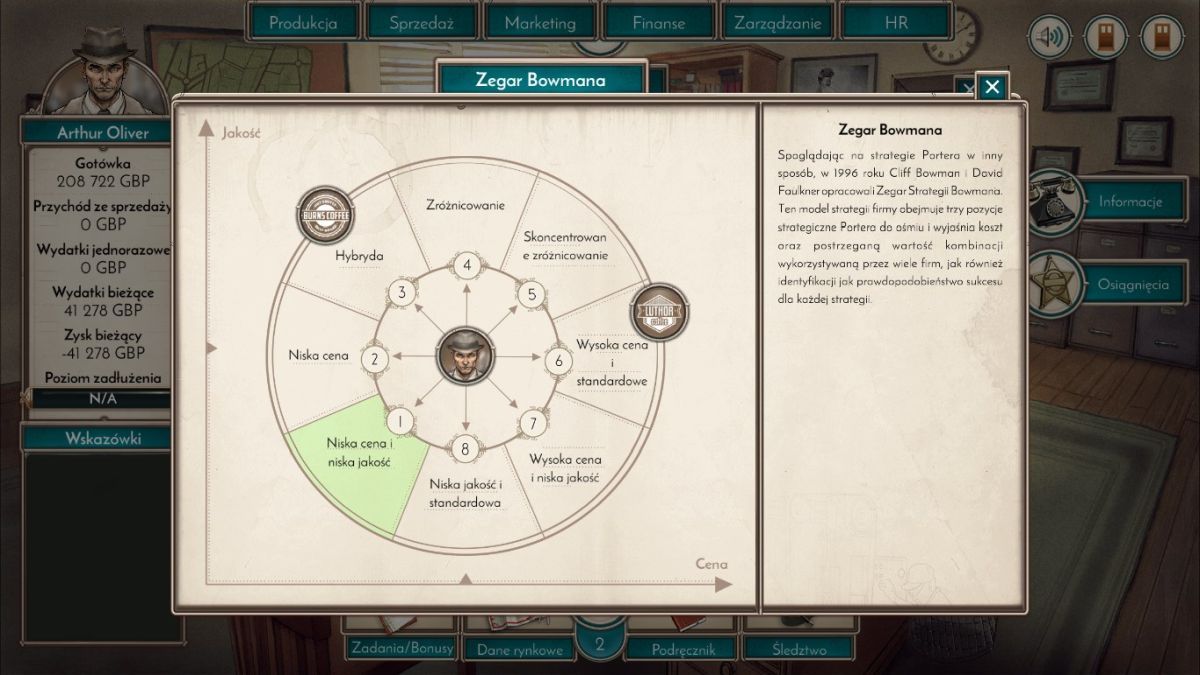
MARKETING
This section, in turn, is about choosing the best coffee promotion strategy at the given time. The player determines what kind of coffee he wants to promote, how long and in what area. On the basis of the entered data, the engine calculates the cost and the impact on the potential customers. The player has the ability to accept set terms and thus start the campaign or modify parameters if he does not have enough cash, or if he is not satisfied with the potential impact of the marketing campaign and wants to increase its impact. All input data are then re-calculated and displayed.
HR
Similarly important is the HR department of the company, since in this section the player optimizes his decisions referring to work allocation to the employees. The player takes into account what type of tasks are the best for a given employee (based on the personal data provided) and tries to arrange the work schedule in the way the benefits (understood as task effectiveness) are the greatest. For example, in the game you need to care for the right level of relations with the contractors who buy coffee from you. The more working hours you assign to the specific task, the greater the growth of relations with a given contractor. The player determines the number of hours with the help of sliders, and later the system calculates the impact force on a real time basis.
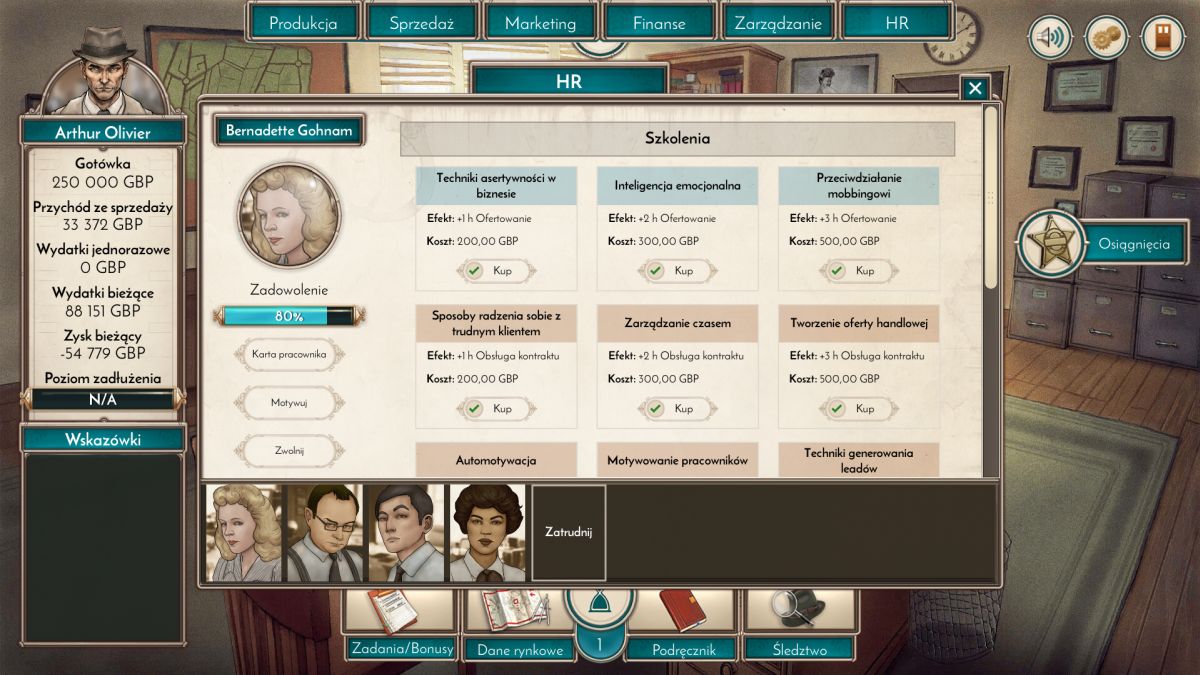
FINANCE
Ultimately, all parameters that have financial consequences in the game are compiled in the finance section, which presents the profit and loss account for all events that occurred in the game. The player has preview of how his income has shaped over time, what is the total amount of generated costs, and whether and how he achieved net profit or loss. This is important because previously signed contracts may be terminated or modified, and this significantly affects the company’s profitability. Because the computing engine calculates economic events taking place in the game every turn and presents them in the finances section, the player has not only a comprehensive overlook of financial results, but also controls the most important financial items. All data can be checked with regard to given turn, both in the form of rough numbers or a nice chart.
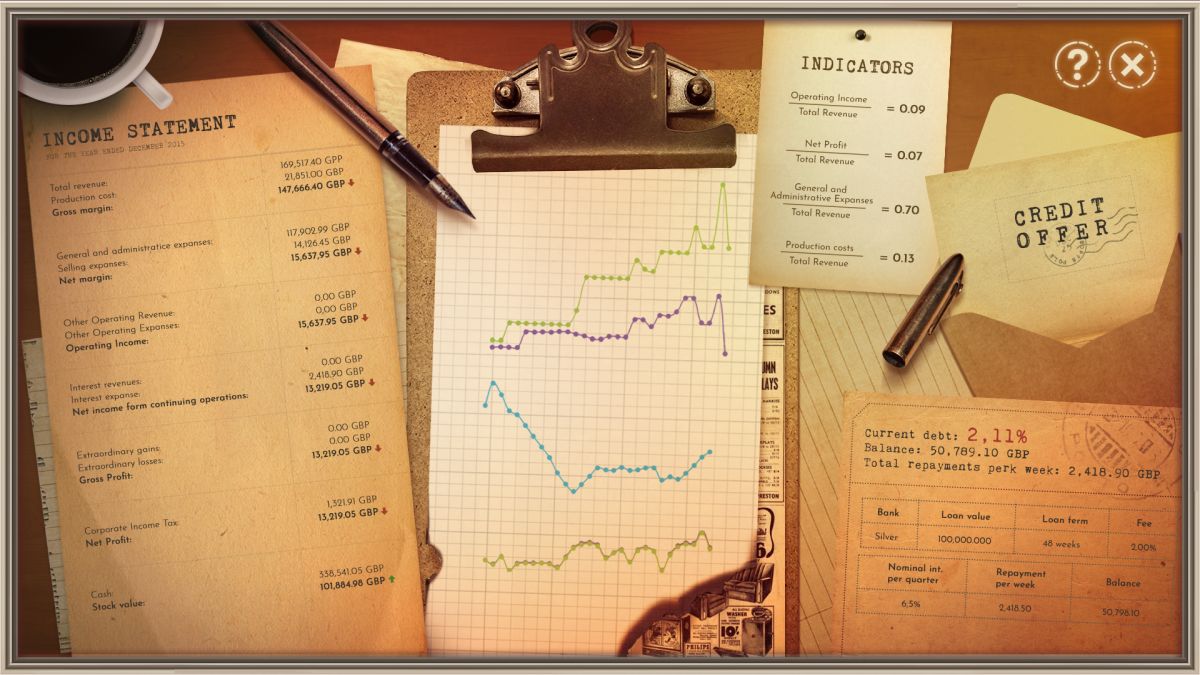


This looks incredible! I’m adding this to my wishlist 🙂 keep up the great work.
P.S RPS brought me here